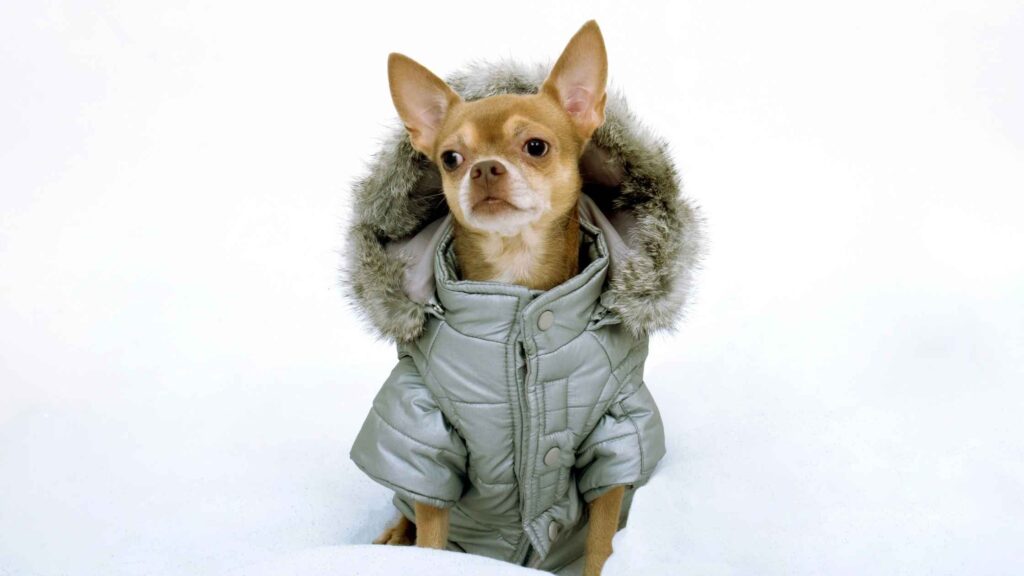Making Your Pet’s First Snow Day Unforgettable
The snow has finally arrived, blanketing the world in a winter wonderland. While you’re bundled up and ready to embrace the magic, you might wonder how to share this enchanting moment with your furry friend.
For many pets, a pet snow day is an entirely new experience. Making their first snowy adventure unforgettable and comfortable takes thoughtful preparation.
Start Slow and Observe
Snow introduces new textures, temperatures, and sensations. Some pets might dive into the fluff with unbridled enthusiasm, while others could be cautious or even nervous. Begin your pet snow day by letting them explore small patches near the door or in the yard. Allow them to sniff, paw, and adjust at their pace.

If your pet seems hesitant, don’t rush them. Use positive reinforcement with their favorite treats for every small step they take. Patience is essential—you’re building confidence with each pawprint.
Gear Up for the Weather

Not all pets are built for the cold. Breeds with short fur or small body sizes may need extra help staying warm. Equip them with a snug coat and waterproof boots to protect against the chill and harmful de-icing chemicals.
If your pet isn’t used to wearing winter gear, let them practice indoors a few days before their first pet snow day. Watching their initial steps in boots can be both heartwarming and amusing. With a little preparation, they’ll be ready for their snowy adventure.
Choose the Right Time and Place
Timing is key for a successful pet snow day. Avoid extreme cold or stormy conditions. Opt for calm days with soft, fresh snow—it’s gentler on their paws and less intimidating.

Choose safe, open spaces free from hazards like deep snowbanks, sharp ice, or hidden obstacles. Parks or fenced yards work well. Always keep your pet leashed in unfenced areas to ensure they don’t chase after snowflakes or other distractions.
Monitor Their Comfort Levels
Your pet’s safety and comfort are the top priorities during a pet snow day. Watch for signs of discomfort, like shivering, frequent paw-lifting, or curling up to avoid the cold. If you notice any of these, head indoors for a warm-up break.

Paws are especially sensitive in snowy conditions. Check for redness, cracking, or ice buildup between their pads. Afterward, gently wipe their paws with a warm, damp cloth to remove debris and de-icing chemicals.
Make It Fun!
A pet snow day is an excellent opportunity for bonding. Toss light snowballs for your dog to chase or hide a toy under a shallow snow layer for a fun game of hide-and-seek. Cats can safely explore snowy patios or backyards with a leash and harness.

Tailor activities to your pet’s personality. Some pets will bound joyfully through snowdrifts, while others might prefer observing from a warm perch indoors. No matter their preference, the goal is to create a positive and enjoyable experience.
Capture the Moment
Don’t forget to snap some photos or videos of your pet enjoying their first pet snow day. These memories will be precious for years to come, and your furry friend’s reactions are sure to bring smiles.
Warm Up Afterward
After your snowy escapade, it’s time to warm up. Gently dry your pet with a towel, focusing on their paws and belly. If their coat is damp, use a blow dryer on a low setting to prevent chills.
Treat them to a cozy blanket and a warm resting spot. Consider a post-snow snack, like bone broth for dogs or heated (pet-safe) wet food for cats, as a comforting way to end the adventure.
Tips for a Safe and Memorable Pet Snow Day
- Avoid overexposure to cold temperatures. Keep outings brief if it’s especially chilly.
- Use pet-safe de-icing products on paths and driveways.
- Ensure your pet’s ID tag and microchip information are up-to-date, just in case they wander off.
- Invest in reflective gear or LED collars to enhance visibility during late or early snow outings.
Frequently Asked Questions
1. Is it safe for all pets to play in the snow?
Not all pets are built for cold weather. Small breeds or pets with short fur may need extra protection, such as coats and boots. Always monitor your pet closely for signs of discomfort.
2. How can I tell if my pet is too cold?
Watch for signs like shivering, paw-lifting, or your pet curling up to avoid the cold. If you notice these, bring your pet indoors to warm up.
3. How long should I let my pet play in the snow?
Keep outdoor play sessions short, especially in cold conditions. Start with 15-20 minutes and gradually extend time as your pet gets more comfortable, but always watch for signs of cold or discomfort.
4. How can I protect my pet’s paws in the snow?
Check your pet’s paws for ice buildup or irritation. After playtime, wipe their paws with a warm cloth to remove snow and de-icing chemicals. Consider using paw balm for added protection.
5. Can my cat enjoy the snow too?
Yes, cats can explore the snow with a leash and harness. Always supervise them closely to ensure they don’t get too cold or wander off.
Additional Resources:
More Blogs:
- How to Help Your Dog with Anxiety
- Do Dental Chews and Toys Actually Benefit Your Dog’s Teeth?
- What You Need to Know About the Cost of Shipping Your Pet
- Why Dog Dental Health Matters?
- What Are Great Dogs for Traveling Seniors?
- Simple Ways to Keep Pets Safe on Halloween
- Tips for Keeping Your Dog at a Healthy Weight